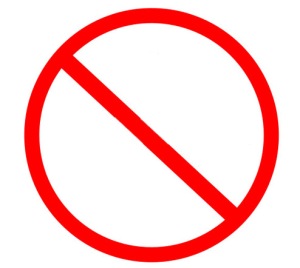
Tag Archives: inspiration
If In Doubt, Do
‘How To Do What You Love’
Although doing great work takes less discipline than people think — because the way to do great work is to find something you like so much that you don’t have to force yourself to do it — finding work you love does usually require discipline. […]
Sometimes jumping from one sort of work to another is a sign of energy, and sometimes it’s a sign of laziness. Are you dropping out, or boldly carving a new path? You often can’t tell yourself. Plenty of people who will later do great things seem to be disappointments early on, when they’re trying to find their niche.
Is there some test you can use to keep yourself honest? One is to try to do a good job at whatever you’re doing, even if you don’t like it. Then at least you’ll know you’re not using dissatisfaction as an excuse for being lazy. Perhaps more importantly, you’ll get into the habit of doing things well.
Another test you can use is: always produce. For example, if you have a day job you don’t take seriously because you plan to be a novelist, are you producing? Are you writing pages of fiction, however bad? As long as you’re producing, you’ll know you’re not merely using the hazy vision of the grand novel you plan to write one day as an opiate. The view of it will be obstructed by the all too palpably flawed one you’re actually writing.“Always produce” is also a heuristic for finding the work you love. If you subject yourself to that constraint, it will automatically push you away from things you think you’re supposed to work on, toward things you actually like. “Always produce” will discover your life’s work the way water, with the aid of gravity, finds the hole in your roof.
The Book – An Introduction
I’ve been in one of my Hemingway periods (long bouts of thinking followed by short bursts of writing) and find work on The Book slow as a consequence. To that end I promised myself three hours of today of proper pen-to-paper writing.
For me, the following rough-cut excerpt is the closest I’ve yet come to saying what I want to say. What do you think? If this was the introduction would you keep reading?
Each story you are about to read hinges on this simple truth: extraordinary people become who they are by fixing their eyes on a goal and moving towards it. That’s it.
Their magnificent, heart-warming, inspiring stories are possible because they are doers. There is no magic formula, no prerequisite, no mystery to their success. They simply set out to do something, to live a certain way, and the act of doing it was the sole precondition for their success.
Along the way each of them developed the skills, knowledge, and beliefs that sustain them and help them progress, but those only followed the first, the essential thing: action.
They have lives like Goldberg Devices – fantastic contraptions that no one else would have dreamed up, with outcomes decided by a single motion transferred through weird and wonderful mechanisms. Unexpected twists, peculiar levers and unnamed bits of machinery that come together to propel their lives forward.
They stopped waiting for the perfect moment, the clear-cut path, the secure position, the external affirmation. They decided: this is what I’m going to do, and did it, without guarantee or assurance.
Once they took that step, things happened. They found ideas, courage, inspiration, experience, friendships and knowledge that became part of their progress. As they moved forward, each step revealed the next. They gained momentum. They achieved their goals. They created news lives and saw the world through new eyes.
They discovered that those who do, can.
What matters isn’t what you have or know; where you live or how much you earn. What matters is what you are willing to do. As you’ll discover, anything is possible. You can conquer illness, climb mountains, unite a nation, change your career or save a child’s life. You can become an artist, an explorer, an athlete, a hero. You can live the life you’ve always dreamed of – if you will.
How To Be Free
High on the list of books I cannot live without is Walden, Henry David Thoreau’s masterpiece. My dogeared, pencil-lined copy is one of my prized, and most frequently reread, possessions. The following is from its final chapter.
I did not wish to take a cabin passage, but rather to go before the mast and on the deck of the world, for there I could best see the moonlight amid the mountains. I do not wish to go below now.
I learned this, at least, by my experiment; that if one advances confidently in the direction of his dreams and endevours to live the life which he has imagined, he will meet with a success unexpected in common hours. He will but some things behind, will pass an invisible boundary; new, universal, and more liberal laws will begin to establish themselves around and within him; or the old laws be expanded, and interpreted in his favaour in a more liberalse sense, and he will live with the licence of a higher order of beings. In proportion as he simplies his life, the laws of the universe will appear less complex, and solitude will not be solitude, nor poverty poverty, nor weakness weakness. If you have built castles in the air, your work need not be lost; that is where they should be. Now put the foundations under them.
~Henry David Thoreau
Love Enough
The only calibration that counts is how much heart people invest, how much they ignore their fears of being hurt or caught out or humiliated. And the only thing people regret is that they didn’t live boldly enough, that they didn’t invest enough heart, didn’t love enough. Nothing else really counts at all.
…that’s how we measure out our real respect for people—by the degree of feeling they can register, the voltage of life they can carry and tolerate—and enjoy. End of sermon. As Buddha says: live like a mighty river. And as the old Greeks said: live as though all your ancestors were living again through you.
– Ted Hughes
Via Letters of Note
Big Quitters Start Small
 Quitting is an exercise like any other. You don’t have to rush in and try to deadlift the heaviest thing in your life. The big, scary weights aren’t going anywhere so you may as well start with something you can pick up.
Quitting is an exercise like any other. You don’t have to rush in and try to deadlift the heaviest thing in your life. The big, scary weights aren’t going anywhere so you may as well start with something you can pick up.
For example, when I went to Mexico I quit buying facial cleanser. At first, it was just because I was flying hand-luggage only and it was over the 100ml size limit. So I took off without it. A few days of soap and water on the road and… nothing happened. My skin – long accustomed to expensive cleansers and moisturisers – remained exactly the same. It didn’t flake off or swell up or go greasy.
Now I use Dove bar soap once a day, which costs less than a quid and lasts for months. This represents a considerable savings over £6-£10 on a cream cleanser that lasts a few weeks, so switching has saved me a lot of money.
More importantly, once I realised that ‘cleanse, tone, moisturise’ is pure marketing bullshit I started wondering “what else do I really not need?”
Turns out I can live without a huge handbag collection and a closetful of impractical shoes. Nothing bad has happened as a result of only owning one winter coat and one pair of trainers. Sure, I still have loads of stuff I treasure and would hate to get rid of but it’s good to know I don’t need it.
Admirable Lives
Wish I could claim these beautiful words as my own, but they belong to EM Forster
The people I admire most are those who are sensitive and want to create something, or discover something, and do not see life in terms of power… They found religions, great or small, they produce literature or art… or they may be what is called ‘ordinary people’, who are creative in their private lives, bring up their children decently, for instance, or help their neighbours.
Why Quit?
In case you were wondering, I am 100% serious about the I Quit Club. For real. Quitting can change your life.
Quitting is tough though. Not the act itself, which is as easy as falling off a bike (and a lot more fun) but getting your head around the idea that it’s okay to quit.
I was brought up to think quitting was bad. Grown-ups told me that “winners never quit and quitters never win”.
It never occurred to me to ask: “win what?” so I carried on not-quitting like a good girl, right up to my second year of university.

To put this in context, I’d wanted to be a doctor since I was 12. My big crush was Noah Wyle in ER and a steady diet of white-coat heroics convinced me medicine was my calling.
It was a logical choice: secure, predictable, good money, and above all respectable. Off I waltzed to uni: confident, determined and oblivious to the implications of the fact that I hated physics, struggled with chemistry, shrank from biology, and shuddered at maths. I also studiously suppressed my love of English and writing.
Looking back, I am half-amused and half-horrified at how dumb a bright girl can be (“Was anyone ever so young?” Joan Didion sighed). Nothing got through until my second year when I hit term two of physics. Most stuff I can bluff through but physics stopped me cold. You can’t bullshit an equation. Lectures were torturous and the coursework reduced me to tears.
The idea forced itself into my head, unbidden: “why don’t you quit?” Oh god. That was not in my plan. Quelle drama. I freaked out. Bored my poor friends witless with my teacup tempest. In the States, physics is a pre-med requirement so quitting the class meant the end of my doctor dream. Oh my god. I had my WHOLE LIFE mapped out. Quitting would fuck everything up. But I still couldn’t do physics. So I quit.
The minute I made the decision my anxiety and guilt vanished in a rush of relief. I didn’t have the right answers, but I had definitively eliminated a wrong one. It felt amazing.
What I didn’t appreciate until much later was that you can’t have everything at once. You can’t reach out for something new, or receive a gift, if you’re hanging on to your baggage with both hands.
Join the IQ Club
Join the IQ Club — because smart people know when to quit.

Quitting is good. Seriously. If you want to be happier right now quit something.
What bugs you? Your job? Your crummy relationship? The headlines? Carpooling? Organising play dates for your kids? Pretending to be interested in your friend’s kids? Grocery shopping?
Whatever it is, take a deep breath and say – preferably aloud – “I Quit.”
You can. You are an adult, of sound mind and free will. Act like one. Do not say “I can’t.” If you won’t, be honest and say that. But don’t say “can’t”.
We’ve been sold this bullshit that in order to improve our lives we need to do more. So we run ourselves ragged to work harder, go to the gym more, eat six small meals a day, be more sociable, catch up on the latest whatever, do up the spare room… the list runs on forever. As long as we play that game we’ll always be a few tick-boxes away from perfection, so quit.
What do you have to lose? Bad habits, bad relationships, boring friends, time-and-money wasting hobbies you don’t really enjoy, uncomfortable shoes, the respect of people you don’t give a shit about anyway.
The reason a lot of us don’t quit stuff is we’re scared to falling behind. Bollocks to that. Let’s stop chasing impossibilities and revel in taking control. Be a proud quitter.
Join the IQ Club by posting a comment saying what you’re quitting, email or  Tweet @CilaWarncke with your IQ(uit) pledge. My favourite “quit” wins a bar of chocolate and a copy of “On Self-Respect” so hit me up and make it interesting!
Tweet @CilaWarncke with your IQ(uit) pledge. My favourite “quit” wins a bar of chocolate and a copy of “On Self-Respect” so hit me up and make it interesting!





